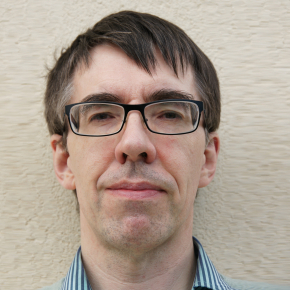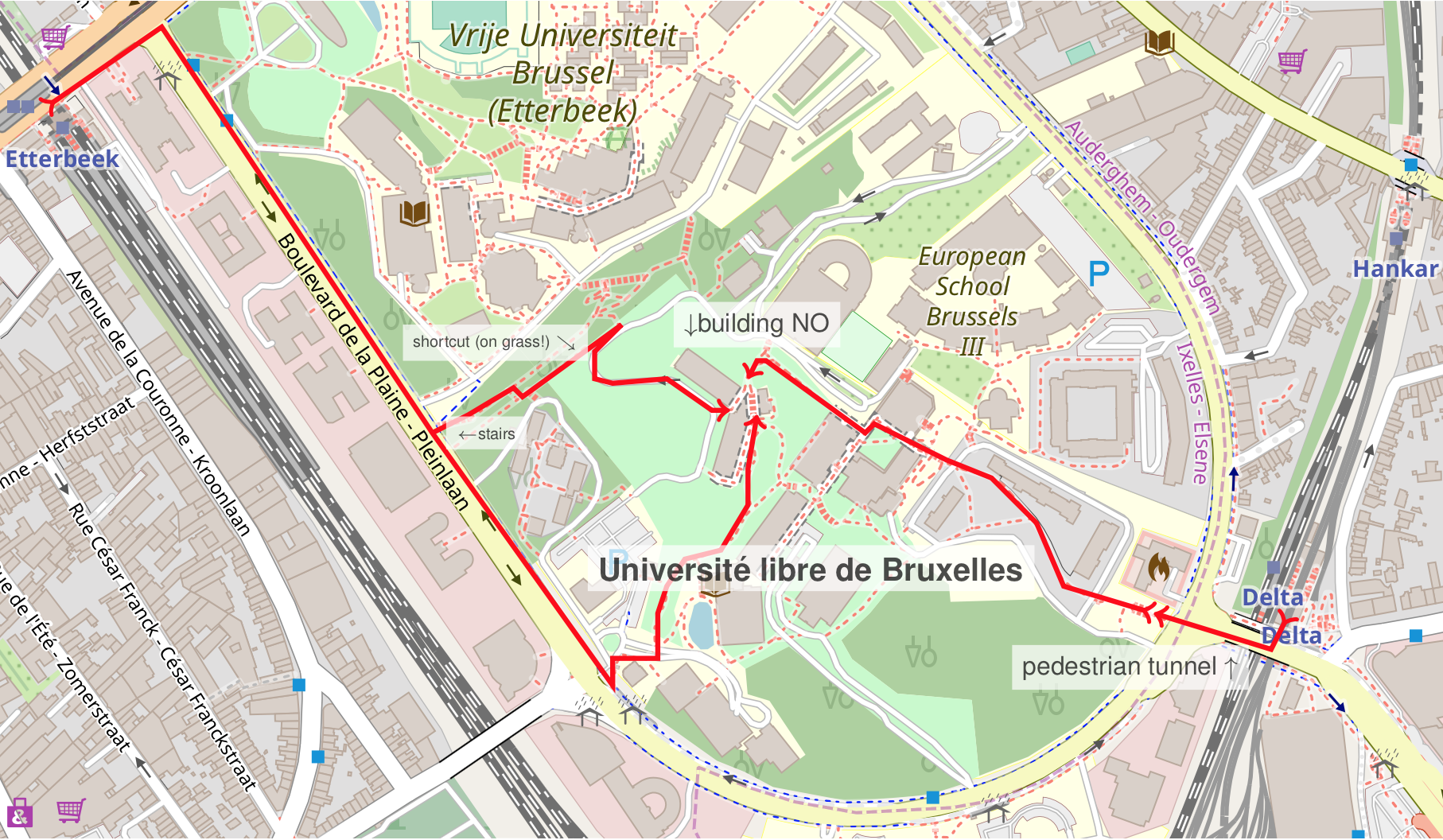Meeting of the FNRS Contact Group
Important remark: registration to this workshop is now closed.
On this page... (hide)
The next meeting of the
FNRS Contact Group "Wavelets and applications"
will take place in the "salle des professeurs" (2.NO.9.06) in building NO, 9th floor, at ULB, Campus Plaine, Brussels, on Friday, November 22nd.
This event will also be held in the honor of Prof. Christine De Mol (ULB, Belgium), former president of this contact group, who retired on October 1st, 2019.
1. Plenary speakers
For this workshop, we are thrilled to welcome in Brussels
- Ingrid Daubechies (Duke, USA),
"Phase retrieval for the magnitudes of frame coefficients in infinite dimension"; - Jean-Christophe Pesquet (CentraleSupelec, France),
"Forward-backward steps and variations"; - (cancelled)
Lorenzo Rosasco (MIT/Genova, USA),
"Implicit bias and regularization in machine learning and inverse problems";
each for a 50' plenary talk on the subjects announced above.
2. Program
In addition to the plenary talks, we are glad to welcome four 25' contributed talks by Christophe Kervazo (University of Mons), Maarten Jansen (ULB), Nelly Pustelnik (CNRS, Laboratoire de Physique de l’ENS de Lyon), and Vincent Schellekens (UCLouvain). The detailed program is provided hereafter.
- 09.15-09.45
- Welcome coffee/tea
- 09.45-10.00
- Welcome address
- 10.00-11.00
- (plenary) Jean-Christophe Pesquet (Centrale Supelec - University Paris-Saclay)
"Forward-backward steps and variations."
(slides) - 11.00-11.30
- Nelly Pustelnik (CNRS, Laboratoire de Physique de l’ENS de Lyon):
"Semi-Linearized Proximal Alternating Minimization for a Discrete Mumford–Shah Model"
(slides)
Abstract: The Mumford–Shah model is a standard model in image segmentation and many approximations have been proposed in order to approximate it. The major interest of this functional is to be able to perform jointly image restoration and contour detection. In this work, we propose a general formulation of the discrete counterpart of the Mumford–Shah functional, adapted to nonsmooth penalizations, fitting the assumptions required by the Proximal Alternating Linearized Minimization (PALM), with convergence guarantees. A second contribution aims to relax some assumptions on the involved functionals and derive a novel Semi-Linearized Proximal Alternated Minimization (SL-PAM) algorithm, with proved convergence. We compare the performances of the algorithm with several nonsmooth penalizations, for Gaussian and Poisson denoising, image restoration and RGB-color denoising. We compare the results with state-of-the-art convex relaxations of the Mumford–Shah functional, and a discrete version of the Ambrosio–Tortorelli functional. We show that the SL-PAM algorithm is faster than the original PALM algorithm, and leads to competitive denoising, restoration, and segmentation results. - 11.30-13.30
- Lunch
- 13.30-14.00
- Christophe Kervazo (University of Mons):
"Mini-batch optimization for large-scale sparse blind source separation"
(slides)
Abstract: Sparse Blind source separation (sparse BSS) is an unsupervised matrix factorization method that has now become one of the major tools to analyze and extract information for multi/hyperspectral data. With the ever-growing size of datasets in fields like remote sensing and astrophysics, it is essential to design scalable but still efficient and reliable BSS methods. We here introduce such a scalable sparse BSS algorithm, which combines a robust projected alternate least-squares method with mini-batches. The originality lies in the use of manifold-based aggregation from asynchronously estimated mixing matrices. This approach is showed to maintain high performances, which are similar to the ones of non-parallelized algorithms in most cases. Remarkably, it can further outperform them when the sources have highly sparse distributions. Numerical experiments are carried out on synthetic data as well as realistic simulations of spectroscopic data. - 14.00-14.30
- Maarten Jansen (ULB):
"Multiscale local polynomials for unequispaced data processing"
(slides)
Abstract: On nonequispaced data, the lifting scheme provides a framework for the construction multiscale analyses. In the construction, there are basically two options. The first option is to develop a multiscale decomposition from basis functions that are known to be refinable, meaning that they can be defined on (nested) grids of knots. B-spline functions are a typical example of this approach. The second option, which will be highlighted in this talk, is to build a multiscale analysis from a uniscale filtering or smoothing technique. As multiscale local polynomials are a popular local regression method in statistics (along with spline methods), we investigate the use of this smoothing technique in the construction of a multiscale decomposition. For reasons of continuity, a critically downsample wavelet scheme is not possible, motivating the use of a slightly redundant scheme, provided by the Laplacian pyramid. Further issues include the role of the kernel bandwidth as a continuous scale parameter, the smoothness of the reconstruction, the basis functions. - 14.30-15.00
- Vincent Schellekens (UCLouvain):
"Generative models as data-driven priors: how to learn them efficiently?"
(slides)
Abstract: ”Generative models are the new sparsity” is a statement that appears more and more frequently. In this talk, I will first give an overview of what generative models are, and explain how (and when) they should be used as a data-driven prior in general inverse problems. I will then explain why generative networks are notoriously hard to train, and propose a compressive learning-based method to simplify this training. Compressive learning in a recent framework where models are trained not from the full dataset but from a heavily compressed sketch that summarizes only the required information, allowing, in this case, to train the generative model without explicit and repeated access to the whole database. - 15.00-15.30
- Tea/Coffee break
- 15.30-16.30
- (plenary) Ingrid Daubechies (Duke University):
"Phase retrieval for the magnitudes of frame coefficients in infinite dimension"
(slides) - 16.30
- Closing words and drink
3. How to reach the workshop
The workshop will take place at Université libre de Bruxelles (ULB), campus Plaine, building NO, floor 9, room 2.NO.9.06 (“salle des professeurs”) in Brussels, Belgium. Campus Plaine can be reached by metro (line 5, stop “DELTA") or by train (station “Etterbeek” or station “Delta”). Building NO is a 5-10 minute walk from Delta or Etterbeek.
Here a small map providing the main pedestrian directions to get there.
Other directions can be found here.




